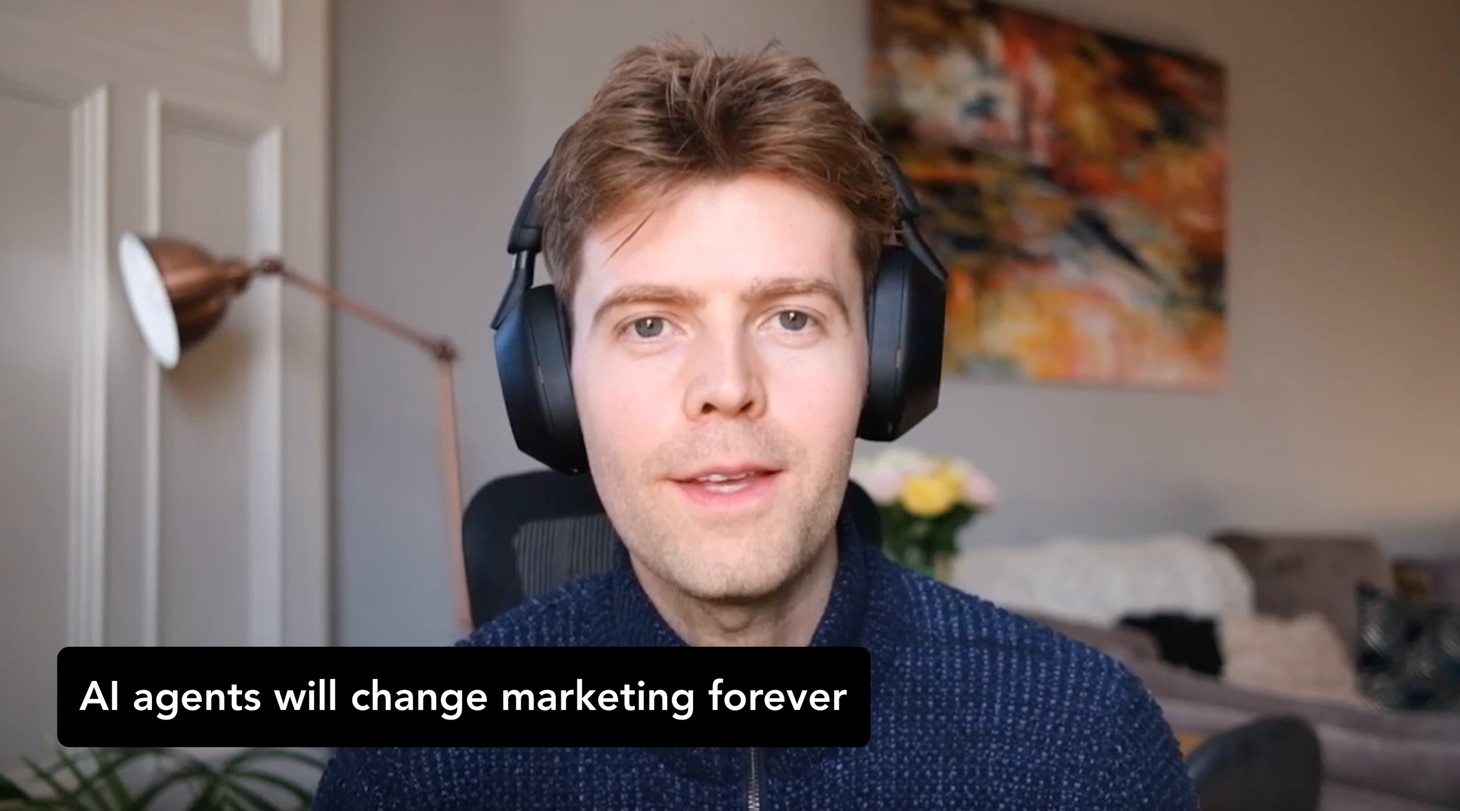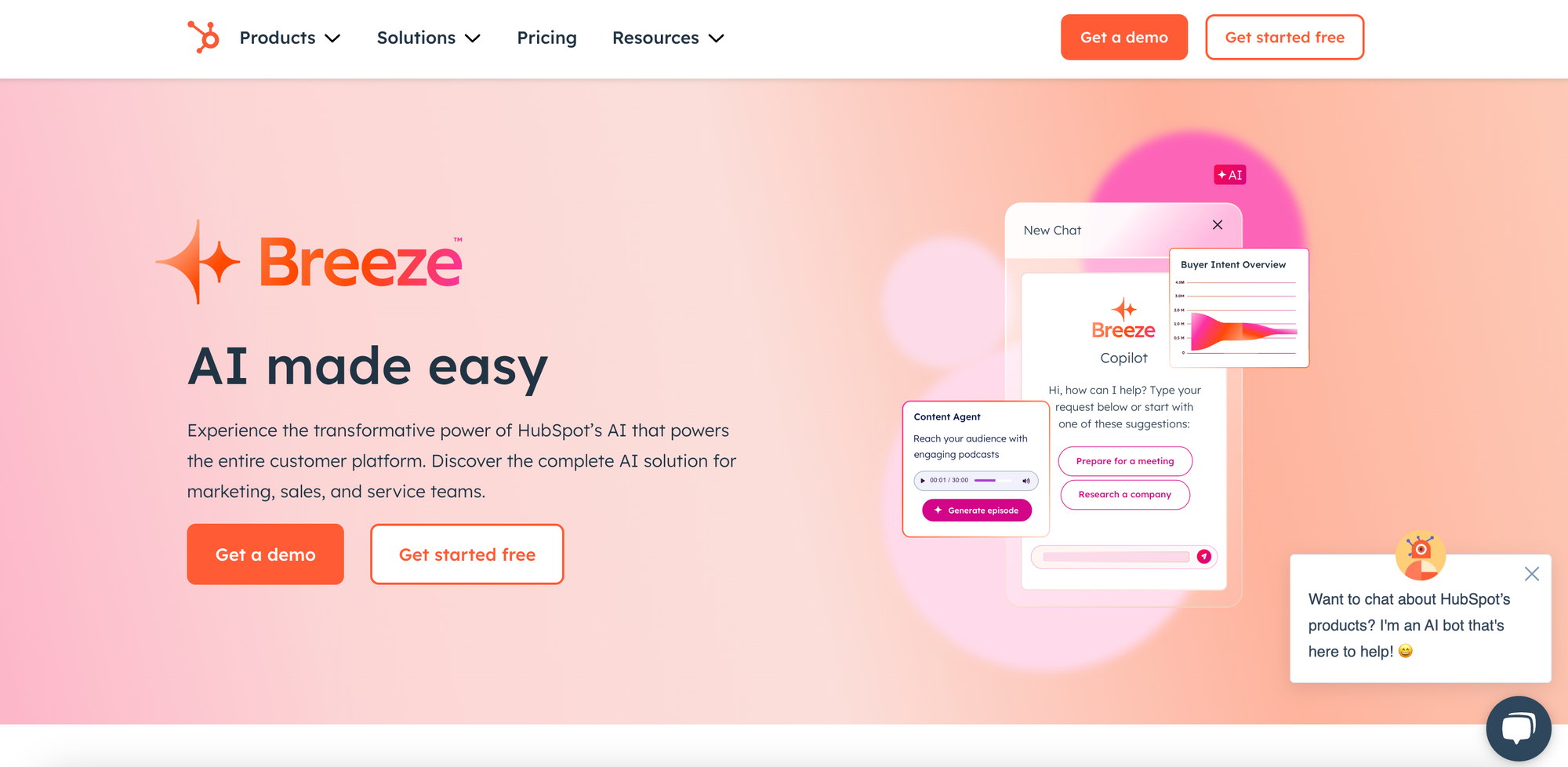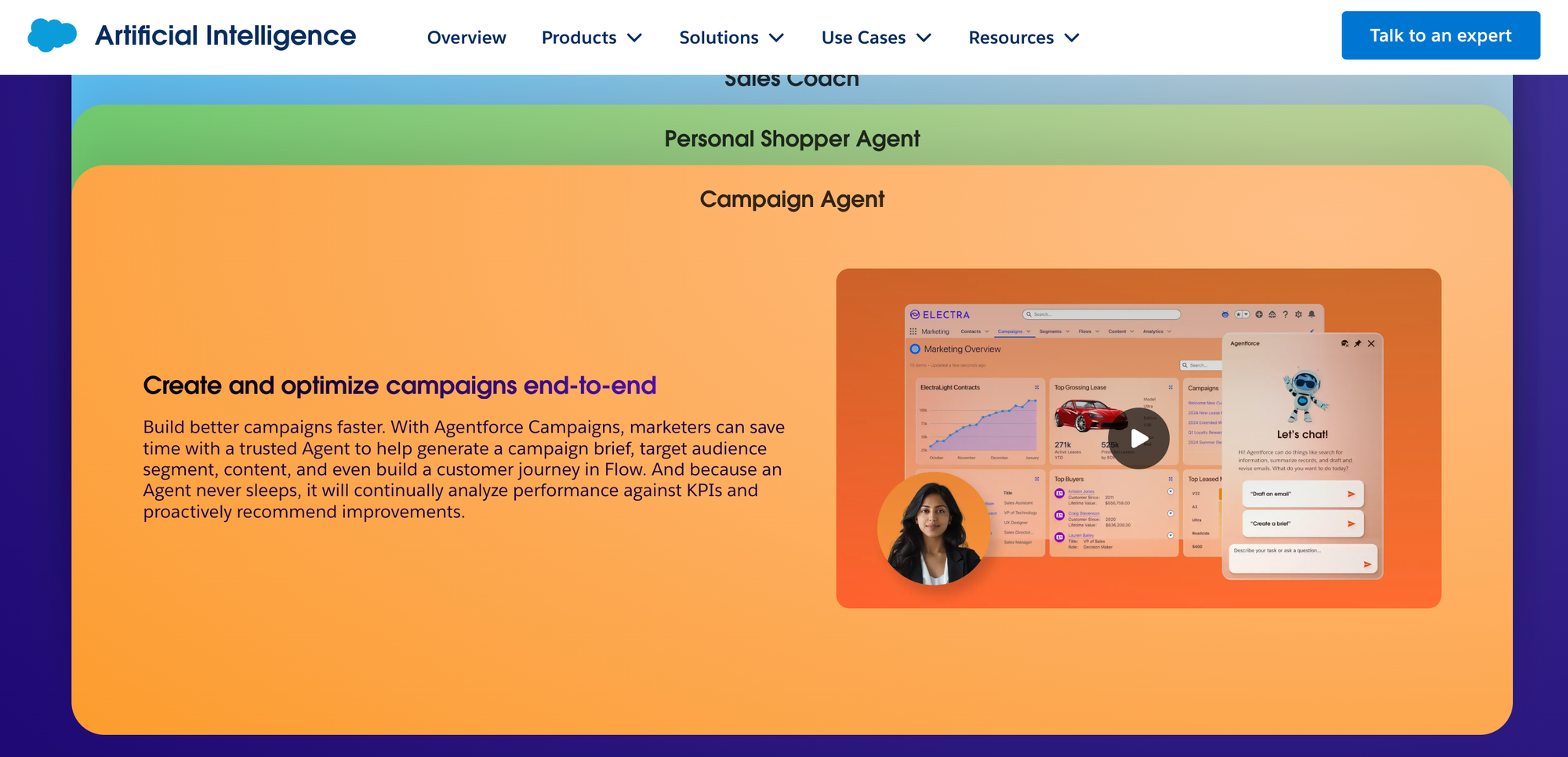AI agents will change marketing forever

Marketer, meet your AI agent. Companies like HubSpot and Salesforce have been launching new AI agents to do tasks autonomously for use cases across Marketing, Sales and Customer Service.
HubSpot recently launched Breeze AI at INBOUND that includes a Social Media, Content, Prospecting and Customer Service Agents.
Salesforce announced Agentforce, which has a Service, SDR, Sales Coach, Personal Shopper and Campaign Agents.
The vision for how generative AI can truly empower professionals to be more efficient and effective in their day-to-day revolves around this idea of the AI-powered assistant.
AI agents are a step in that direction.
AI agents may change marketing forever. These agents can help marketers by doing all sorts of day-to-day tasks across numerous marketing specialisms to give them time back to focus on strategy and human-to-human relationship building.
Let’s take a look at some of those use cases for different marketing specialisms.
Content marketers can use AI agents for:
- Content ideation and production
- Brief creation
- Landing page creation
- Editing and brand of voice alignment.
Social media marketers are now able to use AI agents to:
- Plan their social media calendar planning
- Draft social posts
- Publish across channels.
Email marketers can ask their AI agents to:
- Draft email outreach and responses
- Personalise emails based on known contact information in their CRM
- Analyse a CRM database and start to prospect companies and decision makers who share similar characteristics.

We’re entering the era where a lot of media creation and optimisation for campaigns will be handled by AI agents. This is a major step forward.
You could in fact do a lot of these tasks with AI chatbots and well engineered prompts, but where AI agents really step it up a gear is their ability to manage campaigns in full, not just produce the media to power campaigns.
AI agents will be able to optimise marketing campaigns in real time. What makes AI agents stand out above AI chatbots is their ability to:
- Work towards a set goal
- Make decisions based on unexpected inputs
- Autonomously undertake sequential actions to achieve that goal without prompts.
A marketer will be able to set up an AI agent to optimise a campaign based on a set goal, and the AI agent will autonomously make actions in relation to that goal, such as setup automation workflows, send emails and publish landing pages.
You can see how Salesforce have positioned their Campaign Agent to reflect this value proposition, “because an Agent never sleeps, it will continually analyse performance against KPIs and proactively recommend improvements.”

AI agents lower the barrier to entry for generative AI usage. These changes open up access to a broader group of non-technically savvy marketers, who will be able to ask in human terms for an AI agent to prepare an entire marketing campaign for them.
All from a single message request, without any prompt engineering know-how.
AI agent output quality can be shaken, not stirred. With all that said, the AI agent output quality can vary wildly depending on the data that the AI agent is able to pull from.
So for marketers to get the maximum value from AI agents they will need to have their data ecosystem optimised for doing so. That starts with a CRM, like HubSpot or Salesforce.
It’s now crucial to establish a data ecosystem for generative AI usage, thus enabling AI agents for marketing activities.
There are still many unknowns, but it’s an exciting time for marketers who embrace AI agents and hand-off a lot of the busy work to focus on more meaningful work.
Rory Hope Newsletter
Join the newsletter to receive the latest updates in your inbox.
